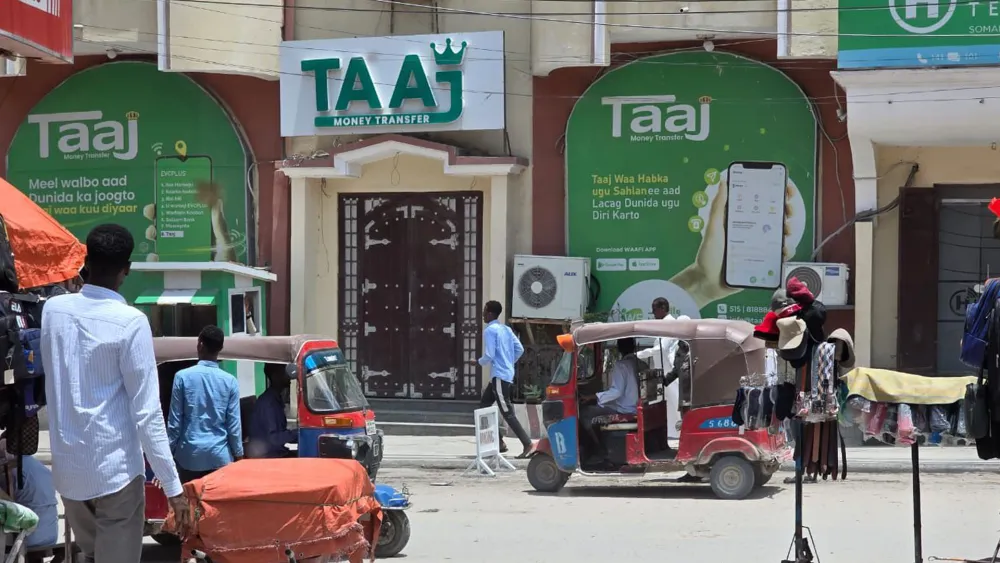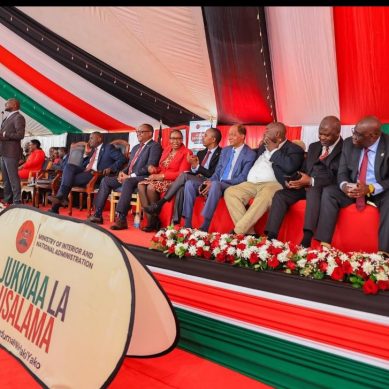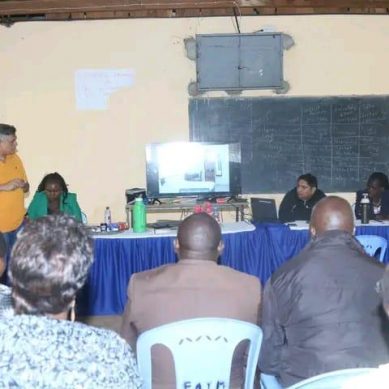
Asli Omar Farah works as a cleaner in the Seattle metropolitan area to support not only her family members in the United States but also a wider community of family and friends in her former homeland of Somalia.
Like many of the estimated 30,000-strong Somali-community in Seattle, she arrived in the US after spending nearly a decade in a Kenyan refugee camp, crossing the border to escape a bitter civil war.
It has been a quarter of a century since Farah settled in the US, but her extended family in Somalia still anchors her to her old home, and with it a sense of duty to provide what support she can from half a world away.
That obligation – felt by many African diaspora communities – is a crucial lifeline for families in Somalia struggling with the impact of conflict, repeated climate disasters and a fragile aid-dependent government.
An estimated 40 per cent of Somali households receive remittances, with the funds typically used to cover day-to-day expenses, school fees and emergencies. In 2023 alone, Somalis abroad sent home $1.7 billion – more than the Somali government’s budget for that year, and the $1.1 billion funding received by international aid agencies.
Each month, Farah manages to send some cash to family members in the city of Garowe, in north-eastern Somalia’s semi-autonomous state of Puntland. But that commitment is increasingly becoming a struggle. Although she earns now more than she ever did, inflation eats into what she can afford.
“It’s also about the difficulty of making the money in the first place in order to send,” she said.
In the Swedish capital, Stockholm, Muhubo Ismail Salad also complained she was feeling the pinch. She lives in the largely immigrant suburb of Rinkeby, whose run-down precincts have some of the highest rates of poverty in the country.
Since arriving in 2003, she has worked a string of manual jobs, from stocking store shelves to cleaning – yet always with an eye on the remittances she feels duty-bound to send.
“You’re forced to pick up more hours because no matter how expensive, there is always a need to support your family in Somalia,” she said.
Sadaq Hersi Mohamud, a mechanic in the Somali capital, Mogadishu, understands the burden relatives abroad feel in trying to maintain a regular flow of support. His brother works as a taxi driver in London, and Mohamud knows he has responsibilities to look after there as well.
“Some months, when things are slow for him, I have to prioritise certain things like rent, utilities, and groceries over school,” he explained.
But life has become particularly hard in Somalia. Consumer price inflation has averaged around 6.2 per cent over the past decade – and hit 10 per cent during the 2022 drought. It has recently fallen to below 6 per cent, but that’s still a significant hurdle for households where every cent counts.
“Ten dollars today and $10 a decade ago does not cut the same (have the same value),” said Mohamud. “Everything, from food to utilities costs more. I don’t know where I’d be without my older brother. His support is the reason I haven’t relocated to the outskirts of [Mogadishu].”
Farah, in Seattle, also feels the pressure of rising prices in Somalia. “In 2014 or 2015, I remember sending $200 for a family of three but now I have to send double for them to be able to manage,” she noted. “Many back home think if you live in America there are no economic challenges; they don’t care that we have to balance our budgets to make sure they get by.”
But the obligation to help remains, said Jethro Norman, a senior researcher with the Danish Institute for International Studies (DISS).
“The squeeze is felt at the edges: For example, a $120 transfer becomes $100 or monthly support becomes every six weeks,” he said. “On the Somali side, inflation quietly eats into value. Households respond by protecting essentials and deferring everything else: fees are paid, but a roof repair waits.”
Somalia has faced a series of punishing droughts over the past decade, and another is on its way. As a result of these climate shocks, and the ongoing rural insurgency of the jihadist group al-Shabaab, 3.4 million people regularly don’t get enough to eat.
Poor rains this season mean that figure is expected to jump to 4.4 million by December – almost a quarter of the population. Hardest hit will be the urban poor, pastoralists with limited livestock, and farming households in the dry central and northern regions.
The looming crisis coincides with critically low funding for aid programmes, with the humanitarian response plan only 20 per cent funded. The reduced flow of donor money will not only affect the most vulnerable, but will also impact the wider economy, notes the World Bank.
“When things like droughts happen, the diaspora tends to step up, even though many people here are having more economic difficulties than ever before.”
“Right now, the drought’s impact on food prices is mostly hitting rural and conflict-affected areas,” Marco Selva, the deputy country director for the World Food Programme, said. However, these “localised shocks could ripple outward” if drought conditions persist, he added.
“Many communities depend on the crops grown in the Shabelle Valley and Bay and Bakool as a food source,” said Mohamed Abdullahi, director of the NGO Somali Humanitarian Organisation (SHO). “When drought strikes, the average person has to pay more, and if they can’t afford it, they eat less.”
Salad in Sweden said she will stand by her family even if it means belt tightening. “No matter how difficult it gets, I’ll always send,” she insisted. “When things like droughts happen, the diaspora tends to step up, even though many people here are having more economic difficulties than ever before.”
Remittances “tend to bend before they break”, said Norman. “Families often widen local fundraising to keep commitments whole, bringing in cousins, traders, or mosque committees to top up shortfalls.”
A report by DISS noted that Somali philanthropy is not based on remittances alone – it includes corporations and businesspeople inside the country. Both channels are socially embedded and enjoy a high-degree of trust and accountability.
Yet these systems, despite their reach and responsiveness, stand outside the formal Western aid channels. Mutual distrust over perceived politicisation – local communities question aid agendas and humanitarians worry support can leak to al-Shabaab – ensures their continued separation, argues DISS.
Abdullahi, from the Somali NGO, sees both approaches as complimentary. “Aid distribution and remittances strengthen social cohesion, as families that receive support often share resources within their extended kinship networks,” he explained. “This creates community-level coping systems [at times of drought] that reduce the risk of displacement and destitution.”
The so-called war on terror, however, has added an extra burden to transmitting money from relatives abroad. The traditional informal hawala networks – typically used by an older generation of Somalis – have been flagged by Western security services as a potential concern for money laundering and terrorism financing.
Yet with weak formal banking systems, and a deep distrust of the local currency, mobile money use has surged, with new money-sending apps making transmitting – typically in dollars – quick and easy. In 2017, the World Bank estimated that 73 per cent of Somalis over the age of 16 use mobile money services.
One of the biggest is the telco Hormuud, with 4.5 million subscribers. It only received its coveted GSMA Mobile Money Certification in 2022, but that puts the company among the top mobile money providers in Africa in terms of safety and security – and it continues to expand.
Remittance companies are the backbone of financial services in Somalia – and the broader economy. “There are a couple of banks in Somalia that have SWIFT [codes] but most people prefer the Hawala since it’s easier and more direct for the receiver,” said a money transfer agent, who asked not to be named as he wasn’t authorised to speak to the media.
“In Somalia, if you have a mobile number, you can receive support [remittances],” he noted. “Every year, the money coming from abroad keeps going up.”
- A Tell Media report / By Mohamed Gabobe / Republished with the permission of The New Humanitarian





